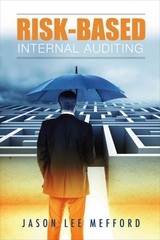Question
true or false 1.like the journal,the ledger provides each account name its running balance. 2.the general journal can only answer the details of a particular
true or false
1.like the journal,the ledger provides each account name its running balance.
2.the general journal can only answer the details of a particular transaction while the ledger can answer the summary of transactions related to the given account.
3.a compounded journal entry means two or more single entries combined into one journal entry.
4.declarations of stock dividends or stock splits are recorded as single or compounded entries in the general journal.
5.adjusting entries are the reverse of all adjusting entries at the beginning of the period.
6.reversing entries are the reverse of all adjusting entries at the beginning of the period.
7.an investment of a noncash asset to the business shall be valued at historical cost.
8 .an asset is expensed if already used in business.
9.a liability can be paid with another form of liability
10.a debit note issued by the bank to the depositor is taken by the depositor in his book as a debit in cash.
11.a credit note issued by the business to its customer is taken in the books of the issuer as debit to accounts receivable.
12.there is loss on notes discounting if the interest income is greater than the amount of discount on notes.
13.the statement of financial position contains the final results of SCI
14.the recording of transactions is done first in the ledger , and then in the journal.
15. an expense will reduce the owner's capital.
16.withdrawal of owner's capital will debit the cash account.
17.a debit balance in the posting of an account means that there is an open asset account.
18. the posting on the PR column means that the value was already posted to the appropriate ledger account.
19.posting reference is needed from audit trail purpose.
20.the accounts reflected in the trial balance are open accounts that can be used as data to prepare financial statements.
21. the current ratio reveals the availability of the company to survive over a long-period of time.
22. non-interest bearing note is a note that does not have cost of money at all.
23. if asset is acquired through borrowings, the interest shall be treated as part of the acquisition cost of the asset.
24. an input VAT is a current asset.
Step by Step Solution
There are 3 Steps involved in it
Step: 1

Get Instant Access to Expert-Tailored Solutions
See step-by-step solutions with expert insights and AI powered tools for academic success
Step: 2

Step: 3

Ace Your Homework with AI
Get the answers you need in no time with our AI-driven, step-by-step assistance
Get Started


